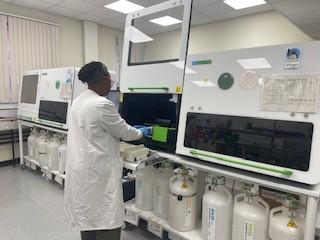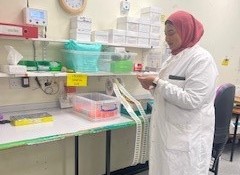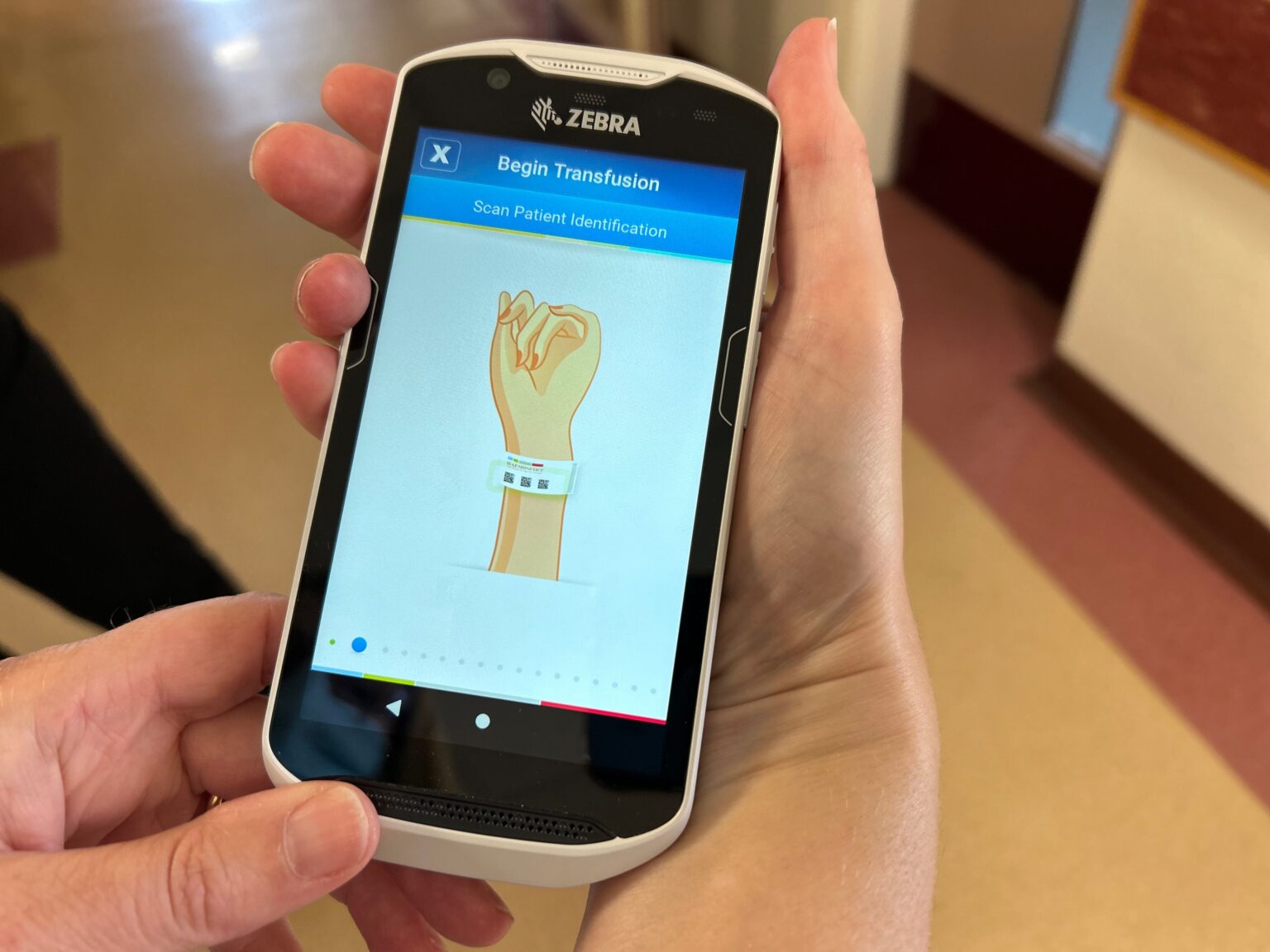Latest news
National Pathology Week 2024: How Bolton’s scientists are diagnosing disease

- Pathology staff and scientists being celebrated on National Pathology Week
- 8 million tests and samples in Bolton’s laboratories help to diagnose disease
- Pathology teams lead a range of projects to improve future of healthcare
The vital work of Bolton’s pathology staff and scientists to diagnose diseases and improve health outcomes for communities is being recognised, as Bolton NHS Foundation Trust marks National Pathology Week.
More than eight million tests have been carried out in the past twelve months by the pathology teams at Royal Bolton Hospital, from antenatal screening samples to point of care testing.
Their work touches the lives of thousands of people, including:
- 1 million blood samples
- More than 57,000 Antenatal Screening Samples, testing for Downs, Edwards and Patau Syndrome
- 45 million clinical chemistry tests
- 640,000 haematology tests
- 84,768 slides processed, accessed and reported in Cell Pathology, which is the highest achieving service in Greater Manchester for turnaround times, supporting the timely diagnosis of patients from tissue samples
It’s not just the millions of tests and samples that are making a vital difference in the lives of patients, but some of the major projects and initiatives taking place behind the scenes to improve care in the future.
Bolton’s Laboratory Medicine department hosts the second largest Antenatal Screening Laboratory in the UK, and has retained its status as the highest performing laboratory in the country for this service.
The service covers more than 70 clinics throughout Greater Manchester, Cheshire and Merseyside, Lancashire, North Midlands and Scotland, processing 57,000 samples for Downs, Edwards and Patau syndromes chance calculations every year.

The dedicated team of scientists measure pregnancy markers in the woman’s blood, which are combined with measurements taken from an ultrasound scan. They use this information to calculate the chance of the fetus having one of the conditions.
Initiatives are underway to support maternal health throughout pregnancy, such as new tests and algorithms for fetal and pre-eclampsia risk prediction.
Karina Hambridge, Antenatal Screening Laboratory Manager at Bolton NHS Foundation Trust, said:
This service ensures women get essential information about their pregnancy and a chance that the baby is affected by a chromosomal condition.
“It provides assurance to women who are lower chance and for higher chance women to have access to support and information about their options for the future of their pregnancy and preparation for birth.”
“I am proud to be part of this service. The team work to the highest standard to ensure the best quality results for women. This is important to me as I know how significant these tests are in a woman’s pregnancy journey and I am glad that I am able to ensure that women get the best possible chance result and provide confidence in the results generated by the laboratory to support women during their pregnancy.
A lot of the work of pathology staff can take place behind the scenes, but their initiatives are helping to enhance patient safety and ensure they receive the best possible care and treatment.
For the past two years, transfusion teams have been leading on a Blood Traceability Project, which aims to make sure there is a full trail of units of blood from the moment it’s stored to the moment it’s given to a patient.
This saw staff moving away from paper records to new digital handheld devices for bedside checks and the administering of bloods by scanning barcodes to ensure the right blood is given to the right patient.

Karen Farrar, Transfusion Laboratory Manager at Bolton NHS Foundation Trust, explained how it’s made the process more efficient and safer:
The devices alert both the user and our laboratory if there are any mismatches or errors in the system that could potentially cause the patient harm, allowing our staff to investigate and resolve the error before the blood is transfused.
“Much of what we do in the lab is behind the scenes and not seen as impacting directly on patient care. This project, and others like it, allows me to interact with clinical teams to learn more about what they do and improve their working environment in some small way.
“Being able to have a direct impact on patient care that is tangible and measurable is very rewarding. It is a privilege to be a part of the wider team providing blood components, advice and support, often in challenging situations, that has a direct impact on patient care.
Technology is also being used to launch a major new system in the Trust’s laboratories to make it easier for clinicians to process the millions of patient tests results each year.
The new LIMS (laboratory information management system) is integrating a number of systems to create a central service that will ensure a more efficient and productive process now and for years to come.
The project is reaching its final stages with the go-live due to take place in early 2025.
National Pathology Week (Monday 4 to Sunday 10 November 2024) is an annual celebration that recognises the important contribution pathologists make to healthcare every single day.